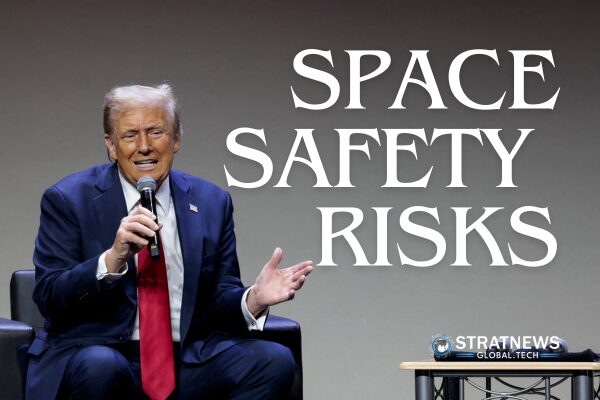U.S. Space Traffic Coordination Effort Weakened by NOAA Layoffs
The Trump administration this week dismissed employees working on a critical system to manage satellite traffic, a move that weakens efforts to enhance space safety. The decision, which impacted staff at the National Oceanic and Atmospheric Administration (NOAA), disrupts a program championed by the U.S. space industry and the former administration, according to sources familiar with the matter.
Key NOAA Space Staff Dismissed
About a third of the 25-person Office of Space Commerce at NOAA, which plays a crucial role in space traffic management, were abruptly let go on Thursday. Acting NOAA chief Nancy Hann informed the employees of their termination with only a few hours’ notice. By the end of the day, they were forced out of the office, sources reported.
Among those dismissed was Dmitry Poisik, the chief of the Traffic Coordination System for Space. This system functions similarly to air traffic control but for satellites, ensuring safe coordination and avoiding collisions. The layoffs could significantly impact ongoing efforts to manage the increasing number of spacecraft in Earth’s orbit.
A NOAA spokesperson declined to comment on personnel matters. However, these job cuts were part of a broader wave of layoffs at NOAA, which also provides the U.S. government’s weather forecasts and hurricane warnings.
Impact on Space Traffic and Regulations
The space traffic program plays a crucial role in alerting satellite operators to potential collisions with debris or other spacecraft. Reducing staff could slow down the transition of these responsibilities from the Pentagon to a civilian agency, creating confusion for users of the system.
The program has become increasingly vital as space becomes more crowded. According to a source, the number of collision notices issued is in the tens of thousands, making space traffic management a critical concern. “It’s like a game of chicken up there,” the source added.
The layoffs also affect NOAA’s ability to issue commercial imagery satellite licenses. On Friday, companies contacting the agency received automated responses stating that NOAA lawyers would handle inquiries, as no senior personnel remained in the office due to workforce reductions.
Delays Expected for U.S. Space Industry
The U.S. space industry, which has long pushed for streamlined regulations, faces potential delays in satellite launches. The Federal Aviation Administration (FAA), responsible for approving rocket payloads, cannot authorize the launch of a satellite that requires a NOAA license if it has not been granted. This disruption could slow down upcoming missions and increase regulatory uncertainty.
Former President Donald Trump had prioritized space traffic management in 2018, directing the Office of Space Commerce to develop an independent system. However, the latest job cuts threaten to stall those efforts, impacting both national security and commercial space operations.
Elon Musk’s broader push for government efficiency has contributed to thousands of layoffs across federal agencies. Musk, who leads SpaceX, has often criticized regulatory processes as slow and outdated, adding further uncertainty to the future of U.S. space policy.
The loss of key personnel at NOAA comes at a time when the space industry is rapidly expanding, requiring more efficient regulations to keep up with technological advancements. As a result, delays in satellite approvals and space traffic coordination could have widespread consequences for both private companies and government agencies.
With inputs from Reuters


